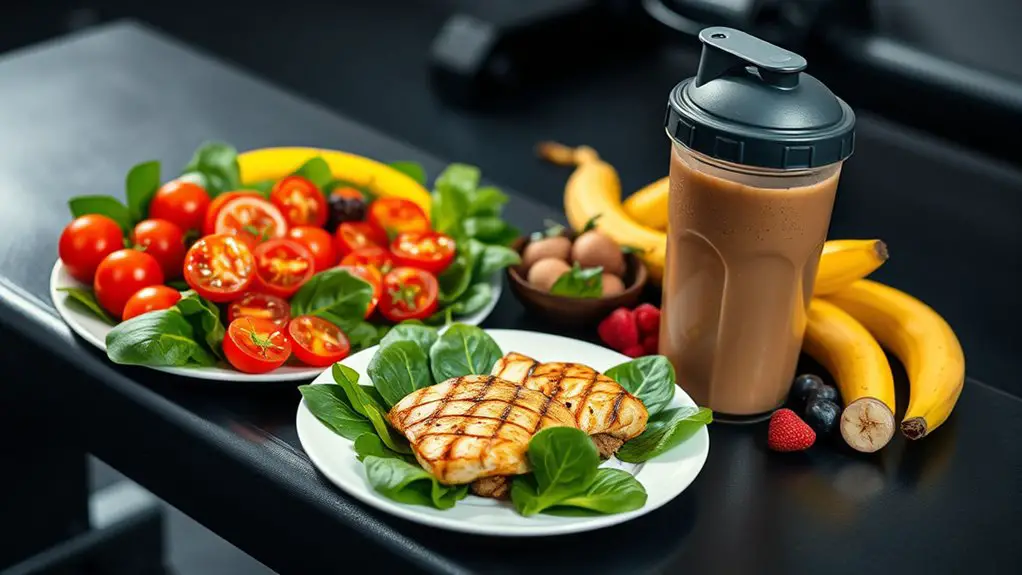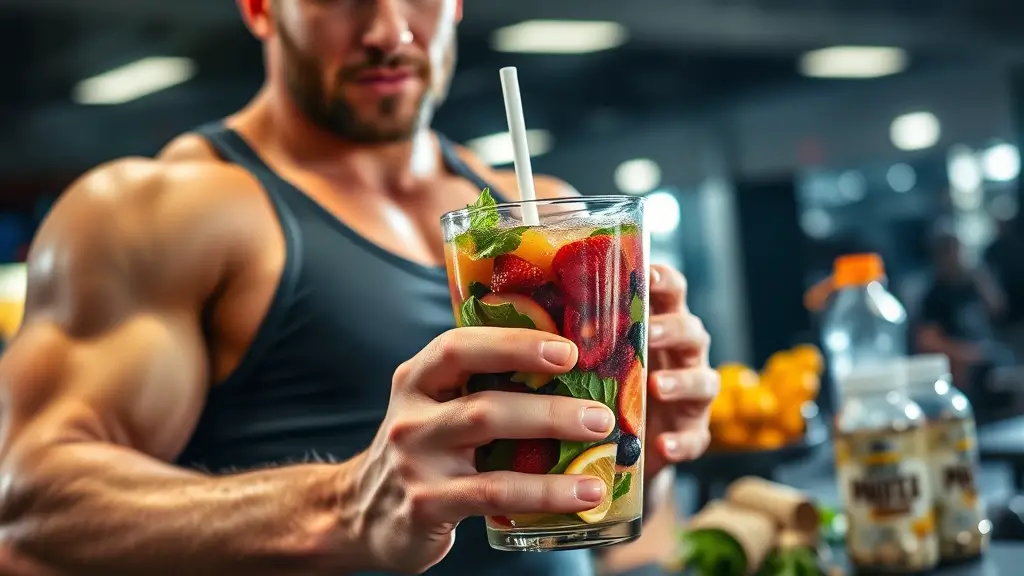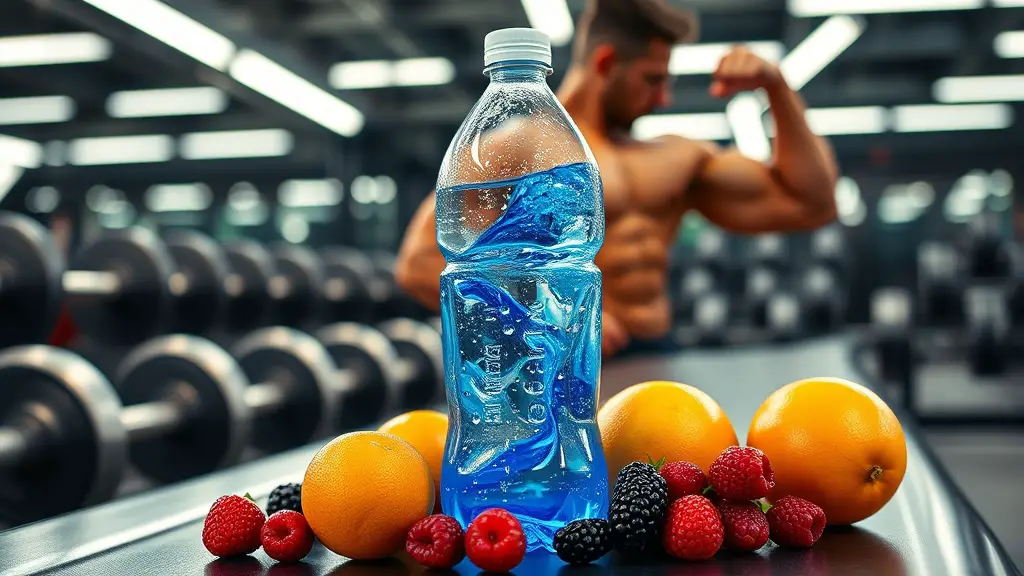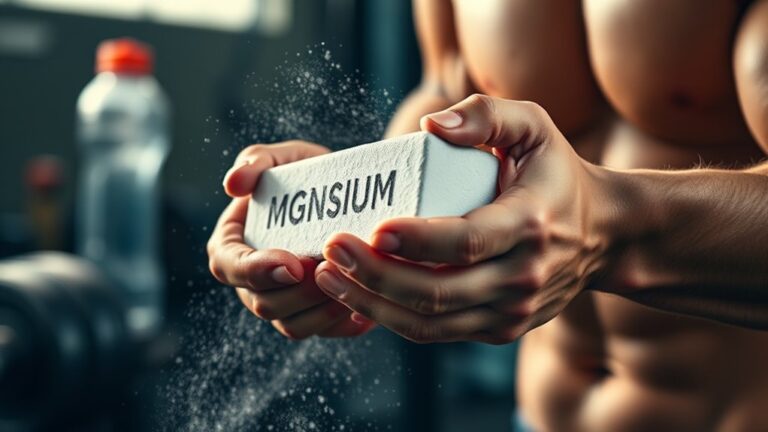How to Eat for Maximum Muscle Pump in the Gym

To achieve maximum muscle pump in the gym, focus on a balanced intake of carbohydrates, proteins, and hydration. Carbs fuel your workouts by replenishing glycogen stores, while protein aids in muscle repair and growth. Incorporating nitrate-rich foods like beets can enhance blood flow, and staying hydrated supports circulation. Time your protein intake within 30-60 minutes post-workout to optimize recovery. By fine-tuning your nutrition, you can elevate your performance and results. Learn how specific meals can maximize your efforts.
Understanding Muscle Pump: What It Is and Why It Matters

When you engage in intense weightlifting, you might notice a temporary increase in muscle size, known as the muscle pump. This phenomenon occurs due to increased blood flow to the muscles during exercise, leading to a greater volume of plasma and nutrients in the muscle tissue. The muscle pump definition highlights this transient swelling, resulting from the accumulation of metabolic byproducts and the engorgement of blood vessels.
The physiological benefits of the muscle pump extend beyond aesthetics. This increased blood flow enhances nutrient delivery, facilitating muscle repair and growth. Additionally, the pump helps to improve vascularity, which can promote better oxygenation and endurance during workouts. Understanding the muscle pump is essential for optimizing your training. By harnessing its benefits, you can enhance your performance, increase motivation, and ultimately support your muscle-building goals.
Key Nutrients for Enhancing Blood Flow
To maximize the benefits of the muscle pump, incorporating specific nutrients into your diet can greatly enhance blood flow to the muscles. Key among these is L-arginine, an amino acid that serves as a precursor to nitric oxide. Nitric oxide is essential for vasodilation, a process that relaxes blood vessels and improves blood circulation. Foods rich in nitrates, like beets and leafy greens, also boost nitric oxide levels, promoting enhanced blood flow during workouts.
Additionally, antioxidants such as vitamin C and E can support endothelial function, further aiding circulation. Another important nutrient is magnesium, which plays a role in muscle contraction and relaxation, indirectly benefiting blood flow. By focusing on these nutrients, you can optimize your body’s ability to deliver oxygen and nutrients to your muscles, maximizing your muscle pump and overall workout performance.
The Importance of Carbohydrates Before a Workout

Carbohydrates play a vital role in optimizing your workout performance by fueling glycogen storage in your muscles. Timing your carbohydrate intake is essential; consuming them shortly before your workout can enhance energy levels and endurance. By strategically managing your carb consumption, you can maximize your muscle pump and overall training effectiveness.
Glycogen Storage Benefits
Glycogen, a key energy source for your muscles, plays an essential role in enhancing workout performance. Consuming carbohydrates before a workout boosts glycogen synthesis, ensuring your muscles are well-fueled for intense sessions. Higher glycogen levels translate to improved endurance, allowing you to lift heavier and perform more reps, ultimately leading to better muscle growth.
Additionally, adequate glycogen stores support muscle recovery post-exercise. After a workout, your body relies on glycogen to repair and rebuild muscle tissue efficiently, reducing recovery time and soreness. Prioritizing carbohydrate intake can considerably enhance your training outcomes, facilitating ideal performance and ensuring your body is prepared for subsequent workouts. By understanding glycogen’s importance, you can maximize your muscle pump and overall gym results.
Timing Your Carbs
While it may seem tempting to skip carbs before a workout, timing your carbohydrate intake can greatly influence your performance and muscle pump. Proper meal timing guarantees your body has the necessary fuel for intense training sessions. Here’s why you should prioritize carbs:
- Energy Supply: Carbs provide readily available energy for your muscles.
- Enhanced Performance: Timing carbs pre-workout can improve endurance and strength.
- Muscle Pump: Carbohydrates promote glycogen storage, enhancing muscle fullness.
- Recovery Support: Post-workout carbs aid in replenishing glycogen stores, especially in carb cycling.
- Optimal Hormonal Response: Carbs can help regulate insulin levels, enhancing nutrient delivery.
Incorporating strategic carb timing into your routine can maximize your gains and elevate your gym experience.
Protein Timing: When to Fuel Your Muscles
To maximize muscle growth and recovery, timing your protein intake is essential. Research shows that protein synthesis occurs most effectively when you consume protein shortly after your workouts. Aim to eat a protein-rich meal or supplement within 30 minutes to two hours post-exercise to enhance recovery and muscle repair.
Incorporating protein throughout the day is equally important. By increasing your meal frequency to include protein-rich snacks, you can maintain elevated amino acid levels in your bloodstream, which supports continuous protein synthesis. Ideally, you should aim for 20-30 grams of high-quality protein per meal, spaced every three to four hours.
This strategic approach not only optimizes muscle growth but also prevents muscle breakdown, ensuring that your efforts in the gym translate into tangible gains. Remember, when it comes to fueling your muscles, timing can be just as important as the quantity and quality of the protein you consume.
Hydration: The Unsung Hero of Muscle Pumps

Staying hydrated is vital for achieving maximum muscle pump during your workouts. Adequate water intake not only supports blood flow but also helps maintain electrolyte balance, which is essential for peak performance. Without proper hydration, your muscles may not reach their full potential, hindering your gains.
Importance of Water Intake
Hydration plays an essential role in achieving ideal muscle pumps during workouts, as it directly impacts your body’s ability to perform and recover. Proper water intake enhances blood flow, nutrient delivery, and overall muscle function. Here are some hydration benefits you can’t overlook:
- Increased blood volume for better circulation
- Enhanced nutrient transport to muscle cells
- Improved endurance, allowing longer workouts
- Faster recovery post-exercise
- Reduced risk of cramps and fatigue
To guarantee adequate hydration, focus on various water sources, including plain water, fruits, and vegetables. Staying hydrated helps you maximize your workout potential and achieve the muscle pump you’re aiming for. So, drink up and feel the difference!
Electrolytes for Optimal Performance
Electrolytes play an essential role in maintaining ideal muscle function and performance during workouts. They help regulate fluid balance, muscle contractions, and nerve signaling. To achieve optimal muscle pump, focus on maintaining sodium balance and incorporating potassium sources into your diet. Sodium aids in retaining fluids, which is vital for hydration and overall performance. Foods like pickles and olives can enhance your sodium intake effectively. Potassium, on the other hand, supports muscle function and prevents cramping. Excellent potassium sources include bananas, sweet potatoes, and spinach. By ensuring you have a proper balance of these electrolytes, you can enhance your workout performance and maximize your muscle pump, making hydration a true unsung hero in your fitness journey.
Pre-Workout Meals: What to Eat for Optimal Performance
To maximize your performance in the gym, it’s essential to pay attention to your pre-workout meals. Proper meal timing and nutrient selection can greatly enhance your energy levels and muscle pump. Aim to eat your pre-workout snacks about 30 to 60 minutes before exercising to allow for ideal digestion. Here are some ideal options:
Maximize your gym performance by focusing on pre-workout meals that enhance energy and muscle pump. Plan wisely!
- A banana or apple with almond butter
- Greek yogurt with berries
- Oatmeal with honey and nuts
- A protein smoothie with spinach and fruit
- Rice cakes topped with cottage cheese
These options provide a balanced mix of carbohydrates, proteins, and healthy fats to fuel your workout. Remember, choosing the right pre-workout snacks can help you feel energized and focused, allowing you to push your limits in the gym. Proper nutrition is key to achieving your fitness goals, so plan ahead and make smart choices!
Post-Workout Nutrition: Replenishing and Recovery for Future Gains

After an intense workout, your body needs proper nutrition to recover and rebuild muscle effectively. Meal timing is vital; aim to consume your recovery meals within 30 to 60 minutes post-exercise. Focus on ideal nutrient ratios, incorporating carbohydrates and protein to maximize muscle repair. Excellent protein sources include lean meats, dairy, or plant-based options.
Consider post workout snacks like Greek yogurt with fruit or a protein shake, which can aid in rapid recovery. Supplement options, such as branched-chain amino acids (BCAAs), can also enhance muscle repair and reduce soreness.
Prioritizing digestive health is essential, so include fiber-rich foods and stay hydrated. Additionally, maintaining consistent meal frequency throughout the day supports recovery strategies and encourages muscle growth. By implementing these practices, you’ll enhance your recovery and set the stage for future gains in the gym.
Frequently Asked Questions
Can Supplements Enhance Muscle Pump During Workouts?
Yes, supplements can enhance muscle pump during workouts. Creatine and citrulline malate are popular supplement types that promote increased blood flow and nitric oxide production. Timing strategies matter too; taking these supplements about 30 minutes before your workout can maximize their effects. Additionally, staying well-hydrated while supplementing can further improve your muscle pump. Combining proper nutrition with these supplements can lead to better performance and more significant results in the gym.
How Does Sleep Affect Muscle Pump and Recovery?
Imagine a gardener tending to his plants. Without adequate rest, their growth stunts, much like your muscles after a workout. Sleep duration and recovery quality are essential; they’re the nutrients your body needs to thrive. Insufficient sleep can hinder muscle repair, making it harder for you to achieve that satisfying pump in the gym. Prioritizing restful nights lets your muscles rebound, ensuring you’re ready for the next challenge.
Is There an Ideal Meal Size Before Working Out?
When considering an ideal meal size before working out, meal timing and meal composition are essential. You’ll want to eat a balanced meal containing carbohydrates and protein about 2-3 hours prior to your workout. This allows your body enough time to digest and convert it into energy. A smaller snack, rich in carbs, can be consumed closer to your workout, around 30-60 minutes prior, to provide an immediate energy boost without feeling heavy.
Can Caffeine Improve Muscle Pump Effects?
Can caffeine really boost your muscle pump? It’s a question many enthusiasts ponder. Research suggests that caffeine sources, like coffee or supplements, can enhance performance by increasing blood flow and reducing perceived effort. To reap these benefits, timing’s essential; consuming caffeine about 30-60 minutes before your workout often yields ideal results. So, if you’re looking to elevate your gym experience, consider integrating caffeine strategically into your pre-workout routine for that extra edge.
What Role Does Genetics Play in Muscle Pump Ability?
Genetics plays a significant role in your muscle pump ability. It influences your muscle fiber composition, determining how your body responds to exercise. Those with a higher proportion of fast-twitch muscle fibers often experience better blood flow during workouts, leading to a more pronounced muscle pump. Additionally, genetic factors can affect capillary density, impacting how efficiently blood reaches your muscles. Understanding your genetic predisposition can help tailor your training and nutrition for ideal results.





